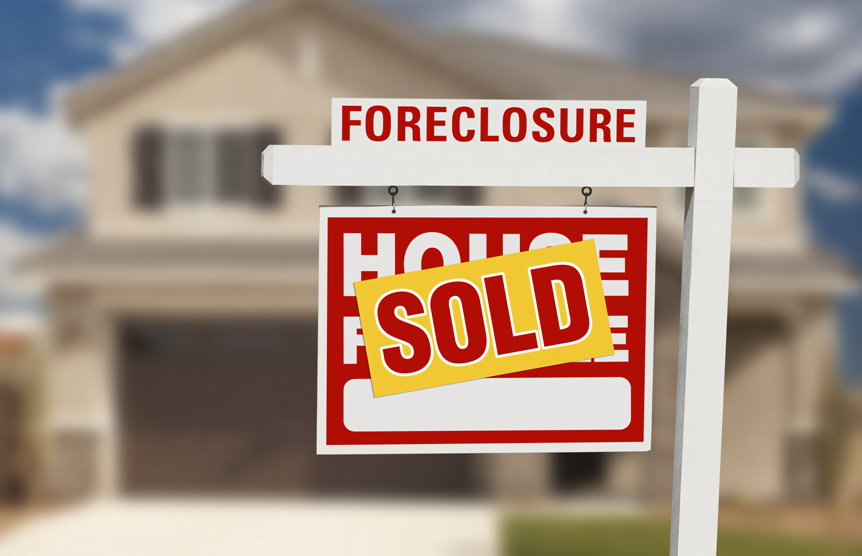Lawmakers are shaking up Wall Street with the signing of a new law aimed at changing the foreclosure process in California. SB 1079, also known as Homes for Homeowners, Not Corporations, was designed to prevent a repeat of a scenario seen during the Great Recession: large corporations bulk-purchasing foreclosed homes, causing a steep decline in homeownership.
The Great Recession’s casualties were devastating: between the years 2007 and 2011, over 785,000 California families lost their homes to foreclosure. This number does not include the more than 1.5 million Californians who also received notices of default (NOD) on their homes.
And yet Wall Street banks enjoyed an unbalanced advantage in the economic disaster they incubated by playing fast and loose with underwriting standards. Today, Wall Street owns a whopping $60 billion worth of single-family rental housing in the United States.
Further, many of those who lost their homes never recovered. Between 2006 and 2012, the number of owner-occupied homes in California plummeted by more than 320,000, while the number of renter-occupied single-family homes rose by more than 720,000.
SB 1079 seeks to right the wrongs of the Great Recession, but only time will tell if it actually goes far enough. The success of this bill depends on keeping Wall Street and private firms at bay, giving renters a greater chance at becoming homeowners.
On the dark side of the bill, naysayers believe the law will trigger substantial litigation and require the courts to step in for clarification. There is also the mystery of how post-auction bidders will affect foreclosure sales themselves. Detractors argue AB 1079 could ultimately harm both lenders and homeowners.
Rid to bid after auction
The new requirements and rights under SB 1079 will ultimately extend the foreclosure process, giving interested buyers more time to secure a home.
Effective January 1, 2021, foreclosed properties will no longer be permitted to be sold in bundles at trustee’s sales, unless the security instrument provides otherwise. Instead, the foreclosed properties will be bid on separately.
Further, eligible tenant buyers and eligible bidders will have 45 days to purchase the foreclosed property after the trustee sale closes. However, if the prospective owner occupant is the last and highest bidder at the trustee sale, the sale is final. Eligible tenant buyers may purchase the foreclosed property by:
- delivering written notice of intent to place a bid to the trustee within 15 days after the trustee sale;
- submitting a bid so the trustee receives it no more than 45 days after the trustee’s sale; or
- matching the last and highest bid price at the auction.
Eligible bidders have the same rights as eligible tenants but need to exceed, not match, the last and highest bid price at the auction.
These protections end on January 1, 2026.
What is an eligible buyer v. an eligible bidder?
For the purposes of bidding on foreclosed properties at auctions, there are different sets of requirements as stated above for both eligible buyers and eligible bidders.
Eligible tenant buyers refer to persons who at the time of the trustee’s sale:
- are occupying the property as their primary residence;
- are occupying the property under a rental agreement entered into as the result of an arm’s length transaction with a mortgagor or trustor on a date prior to the recording of the Notice of Default against the property; and
- are not the mortgagor or trustor, or the child, spouse or parent of the mortgagor or trustor.
Eligible bidder means any of the following:
- an eligible tenant buyer;
- a prospective owner-occupant;
- a nonprofit association, nonprofit corporation or cooperative corporation in which an eligible tenant buyer or a prospective owner-occupant is a voting member of director;
- an eligible nonprofit corporation based in California whose primary activity is the development and preservation of affordable rental housing;
- a limited partnership in which the managing general partner is an eligible nonprofit corporation based in California whose primary activity is the development and preservation of affordable housing;
- a limited liability company in which the managing member is an eligible nonprofit corporation based in California whose primary activity is the development and preservation of affordable rental housing;
- a community land trust;
- a limited-equity housing cooperative; and
- any county, city, district, public authority, public agency and any other political subdivision or public corporation in the state.
Additional protections under SB 1079
SB 1079 provides additional protections which also extend beyond an auction and foreclosure sale.
Owners of vacant properties that were purchased at foreclosure sales are required to maintain acquired properties. Currently under California law, government entities may impose civil fines of $1,000 per day when an owner fails to maintain a purchased vacant property. Under SB 1079, the civil fine increases to $2,000 per day for the first 30 days the property is not properly maintained, and up to $5,000 per day thereafter.
SB 1079 is a necessary piece of the puzzle to prevent past mistakes from resurfacing. Big corporations will not be able to benefit from the foreclosure crisis and homeownership rates will not suffer like they did in 2008. While this looks good on paper, the full effect of SB 1079 remains to be seen.














